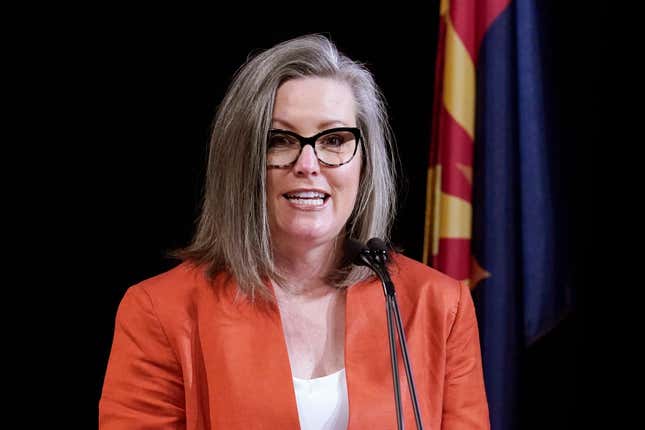She Could Be the Next Governor of Arizona, Where Her Miscarriage Is Now a Crime
Katie Hobbs had a common abortion procedure after experiencing a miscarriage. Now she’s the Democratic nominee for governor in a state that bans abortion.
Politics

On Tuesday, states across the country voted in key primary elections, and the story of the night quickly became Kansas: The supposedly deep-red state had voted overwhelmingly to protect abortion rights. But, over in Arizona, even though abortion wasn’t directly on the ballot—it was in another way.
Arizona Secretary of State Katie Hobbs won the Democratic nomination for governor within days of sharing her personal story about experiencing a miscarriage that required her to have a common abortion procedure. This procedure could notably be a crime under a 1901 pre-Roe v. Wade abortion ban that Attorney General Mark Brnovich is currently suing to enforce now that the Supreme Court has overturned Roe v. Wade.
“I’m mad as hell. I am the mother of two beautiful children. But those were not my only pregnancies,” Hobbs wrote in a recent op-ed in the Daily Beast. “Like many other women, I suffered miscarriages. During one of my pregnancies, the doctors told me that for my health they would need to perform a procedure to remove the pregnancy tissue.” Hobbs notes that this was “the same procedure that’s commonly used for abortions.”
“From personal experience, I can say that losing a pregnancy is already hard enough. I can’t imagine what that situation would have been like had I been told that the best medical decision for my health is also one that would be considered criminal and would land my doctor in prison.”
-

-

-

-

-

-

-

-

-

-

-

-

-

-

-

-

-

-

-

-

-

-

-

-

-

-

-

-

-

-

-

-

-

-

-

-

-

-

-

-








































